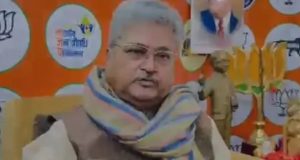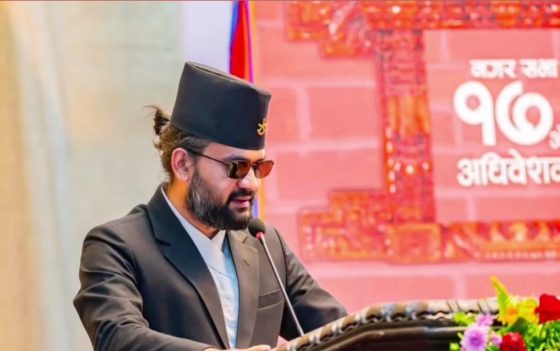Japanese Prime Minister Shinzo Abe swept to a resounding victory in a snap election today, winning a mandate to harden his already hawkish stance on North Korea and re-energise the world’s number-three economy.
Abe’s conservative coalition was on track to win 311 seats in the 465-seat parliament, according to a projection published by private broadcaster TBS, putting the blue-blooded nationalist on course to become Japan’s longest-serving leader.
The comfortable election win is likely to stiffen Abe’s resolve to tackle North Korea’s nuclear threat, as the key US regional ally seeks to exert maximum pressure on Pyongyang after it fired two missiles over Japan in the space of a month.
Abe was heading for a “landslide win”, the top-selling Yomiuri daily said on its website, as the premier’s gamble to hold a snap election appeared to be paying off.
But it was unclear in the immediate aftermath of the vote whether Abe’s coalition would retain its two-thirds “supermajority,” requiring 310 seats, as some media had it falling just short.
A “supermajority” would allow Abe to propose changes to pacifist Japan’s US-imposed constitution that forces it to renounce war and effectively limits its military to a self- defence role.
Millions of Japanese braved torrential rain and driving winds to vote as a typhoon bears down on the country, with many heeding warnings to cast their ballots early.
“I support Abe’s stance not to give in to North Korea’s pressure,” said Yoshihisa Iemori as he cast his ballot in a rainswept Tokyo.
Abe’s Liberal Democratic Party (LDP) benefited from a weak and splintered opposition, with the two main parties facing him created only a matter of weeks ago.
Support for the Party of Hope founded by popular Tokyo Governor Yuriko Koike fizzled after an initial blaze of publicity and it was on track to win around 50 seats, the TBS projection suggested.
Speaking from Paris where she was attending an event in her capacity as leader of the world’s biggest city, a sullen- faced Koike told public broadcaster NHK she feared a “very severe result”.
“As the person who launched the party, I will take my responsibility.”
The new centre-left Constitutional Democratic Party fared slightly better than expected but still trailed far behind Abe with 58 seats.
“The LDP’s victory is simply because the opposition couldn’t form a united front,” political scientist Mikitaka Masuyama from the National Graduate Institute for Policy Studies, told AFP.
The short 12-day campaign was dominated by the economy and the global crisis over North Korea, which has threatened to “sink” Japan into the sea and has traded barbs with US President Donald Trump.
 Dainik Nation News Portal
Dainik Nation News Portal




